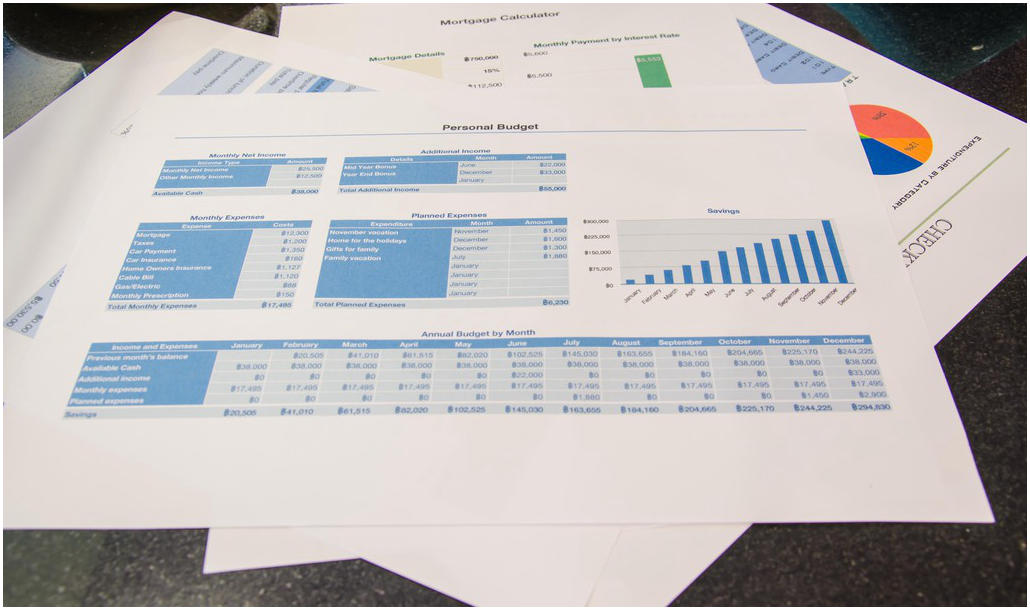财会英语:全球经济还有救吗?
文章是关于财会英语:全球经济还有救吗?的会计实务内容,正文详细介绍了财税人员工作和学习过程中财会英语:全球经济还有救吗?的相关财税知识,可能能您解决财会英语:全球经济还有救吗?的财税学习和工作问题。
The first half of 2011 showed a slowdown of growth – if not outright contraction – in most advanced economies. Optimists said this was a temporary soft patch. This delusion has been dashed. Even before last week’s


加微免费领取各行业会计分录大全!
复制微信号
2011年上半年,大多数发达经济体的增长都出现了减速——如果说不是直截了当的萎缩。乐观主义者表示,这种增长疲软只是暂时现象。可如今这种错觉已然破灭。甚至在上周的恐慌出现之前,美国和其它发达经济体就很可能再度陷入严重的衰退。
America’s recent data have been lousy: there has been little job creation, weak growth and flat consumption and manufacturing production. Housing remains depressed. Consumer, business and investor confidence has been falling, and will now fall further.
美国近期发布的各项经济数据都很糟糕:新创造的就业岗位几乎为零,增长乏力,消费和工业生产疲软。住宅市场仍萎靡不振。消费者、企业和投资者信心不断减弱,今后还将进一步走低。
Across the Atlantic the eurozone periphery is now contracting, or barely growing at best. The risk that Italy or Spain – and perhaps both – will lose access to debt markets is now very high. Unlike Greece, Portugal and Ireland these two countries are too?big to be bailed out.
在大西洋彼岸,欧元区外围国家也在不断萎缩,说得好听一点,几乎没有增长可言。目前,意大利或西班牙(或者两国同时)丧失通过债市融资资格的可能性非常大。与希腊、葡萄牙和爱尔兰不同,这两个国家规模太大,难以为其纾困。
Meanwhile, the UK has seen flat growth as austerity bites, and structurally stagnating Japan will recover for a few quarters – after double-dipping after the earthquake – only to stagnate again as the stimulus fizzles out. Even worse, leading indicators of global manufacturing are slowing sharply – both in the emerging economies like China, India and Brazil, and export-oriented or resource-rich countries such as Germany and Australia.
与此同时,在紧缩措施的作用下,英国的增长一直萎靡不振,而结构性发展停滞、又在地震后二次探底的日本经济,将在未来几个季度恢复一定的元气,但随着刺激计划到期,经济只会再次陷入停滞。更糟糕的是,全球制造业的领先指标也在明显减速——无论是在中国、印度和巴西等新兴经济体,还是在德国和澳大利亚等出口导向型或资源丰富的国家皆是如此。
Until last year policymakers could always produce a new rabbit from their hat to trigger asset reflation and economic recovery. Zero policy rates, QE1, QE2, credit easing, fiscal stimulus, ring-fencing, liquidity provision to the tune of trillions of dollars and bailing out banks and financial institutions – all have been tried. But now we have run out of rabbits to reveal.
直到去年,政策制定者还总能像变戏法一样,从自己的“帽子”里不停地变出新的“兔子”,以刺激资产再膨胀和经济复苏。零政策利率、定量宽松、二次定量宽松、信贷宽松、财政刺激、隔离政策、高达数万亿美元的流动性、为银行和金融机构提供纾困——他们试遍了一切手段。但现在,我们再也没有“兔子”可变了。
The misguided decision by Standard & Poor’s to downgrade the US at a time of such severe market turmoil and economic weakness only increases the chances of a double dip and even larger fiscal deficits. Paradoxically, however, US Treasuries will probably remain the world’s least ugly safe asset: risk aversion, equity declines and a looming slump could even see treasury yields fall rather than rise.
标普(S&P)在市场动荡和经济疲弱如此严峻的时刻下调美国信用评级的决定十分不明智,这只会加大美国经济出现双底衰退、财政赤字进一步扩大的可能性。然而矛盾的是,美国国债很可能仍将是世界上最令人放心的安全资产:投资者规避风险、股市下跌、经济即将陷入低迷,这一切甚至可能导致美国国债收益率下降、而非上升。
Fiscal policy is now contractionary in both the eurozone and the UK. Even in the US the issue is only the amount of drag, as state and local authorities, and now the federal government, cut spending, reduce transfer payments and (soon enough) raise taxes. Another round of bank bail-outs is politically unacceptable. But even if it were not, most countries, especially in Europe, are so distressed that their sovereign risk is actually leading to banking risk – as banks are loaded up with distressed government debt.
如今,无论是欧元区还是英国,财政政策都在收缩。即使在美国,问题也只是财政收缩的规模,各州及地方相关当局都在削减支出,转移支付,并(很快将)增税,现在连联邦政府也开始这样做了。对银行实施新一轮纾困在政治上让人无法接受。但即便可以接受,大多数国家,尤其是欧洲国家,都已深陷困境——由于银行里塞满不良政府债务,它们的主权风险实际上将引发银行业危机。
Hopes for quantitative easing will be constrained by inflation that is well above target levels across the west. The Federal Reserve will probably start a third round of QE, but it will be too little too late. Last year’s $600bn QE2 (along with $1,000bn of tax cuts and transfers) produced a growth bump of barely 3 per cent, for one quarter. QE3 will be much smaller, and will do much less.
出台定量宽松政策的希望,将因整个西方的通胀远高于目标水平而受限。美联储(Fed)很可能会启动第三轮定量宽松政策,但只会是杯水车薪,也为时已晚。去年总规模为6000亿美元的二次定量宽松(加上1万亿美元的减税和转移支付),结果也仅仅是刺激一个季度增长3%。三次定量宽松的规模将小得多,效果也要差很多。
Nor will exports help. All advanced nations need a weaker currency, but they cannot all have it together – if one is weaker another has to be stronger. This is a zero sum game which risks only the resumption of currency wars. Early skirmishes are beginning as Japan and Switzerland try to weaken their exchange rates. Others will soon follow.
出口也帮不上忙。所有发达国家都需要货币贬值,但它们无法同时这样做——一国货币走弱,就必须有一国货币走强。这是一个零和游戏,只会再一次挑起货币战争。随着日本和瑞士试图压低本币汇率,早期小规模冲突已然爆发。其它国家很快也将加以效仿。
So can we avoid another severe recession? It might simply be mission impossible. The best bet is for those countries that have not lost market access – the US, UK, Japan, and Germany – to introduce new short-term fiscal stimulus while committing to medium-term fiscal austerity. The US downgrade will hasten demands for fiscal reduction, but America in particular should commit to look for significant cuts in the medium term, not an immediate fiscal drag that will worsen growth and deficits.
那么,我们能否避免又一次的严重衰退?这或许是不可能完成的任务。最好的办法是,那些仍可以通过市场融资的国家——美国、英国、日本和德国——推出新的短期财政刺激,同时承诺在中期内实施财政紧缩。美国信用遭降级将加速对财政缩减的需求,但美国尤其应该承诺在中期内大幅削减支出,而不是立即实施只会让增长和赤字恶化的财政收缩。
Most western central banks should also introduce further QE, even though its effect will be limited. The European Central Bank should not just stop rate hiking: it should cut rates to zero and make big purchases of government bonds to prevent Italy or Spain losing market access – the outcome of which would be a truly major crisis, requiring doubling (or tripling) of bail-out resources, or debt workouts and a eurozone break-up.
大多数西方央行也应出台新一轮定量宽松,即便其效果有限。欧洲央行(ECB)不应仅仅是停止加息:它应该将利率削减至零,并大举购入政府债券,以防意大利或西班牙无法通过市场融资——这两国如果无法通过市场融资,结果将演变为一场真正严重的危机,需要将纾困资源增加一倍(或两倍),否则将导致债务整肃和欧元区解体。
Finally, since this is a crisis of solvency as well as liquidity, orderly debt restructuring must begin. This means across the board reduction on the mortgage debt for the roughly half of America’s households that are underwater, and bail-ins for creditors of banks in distress. Greek-style coercive maturity extensions, at risk free rates, must also come for Portugal and Ireland, with Italy and Spain to follow if they lose market access. Another recession may not be preventable. But policy can stop a second depression. That is reason enough for swift and targeted action.
最后,由于这场危机实际上既是偿付能力危机,也是流动性危机,各国必须启动有序的债务重组。这意味着全面缩减大约半数苦苦挣扎的美国家庭的抵押贷款债务,让陷入困境的银行的债权人认亏自救。葡萄牙和爱尔兰也必须效仿希腊,以无风险的利率,强制延长债务到期时间,如果意大利和西班牙丧失从市场融资的资格,它们也必须这样做。又一场衰退或许是无法避免的。但有效的政策可以避免经济再次陷入萧条。仅凭这一点,各国政府就应该迅速采取有针对性的行动。
上述是www.aiufida.com关于《财会英语:全球经济还有救吗?》的全部解读,各位会计朋友如果在学习「财会英语:全球经济还有救吗?」时有相关的财税问题,学习问题均可在评论区留言评论。
生命的可贵,在于自我的实现。锐与圆,收与放,得与失,能了然于心,必定受益匪浅,愿你在失意和不顺心时能永远坚强,不会做会计实务不要紧,继续加油!

